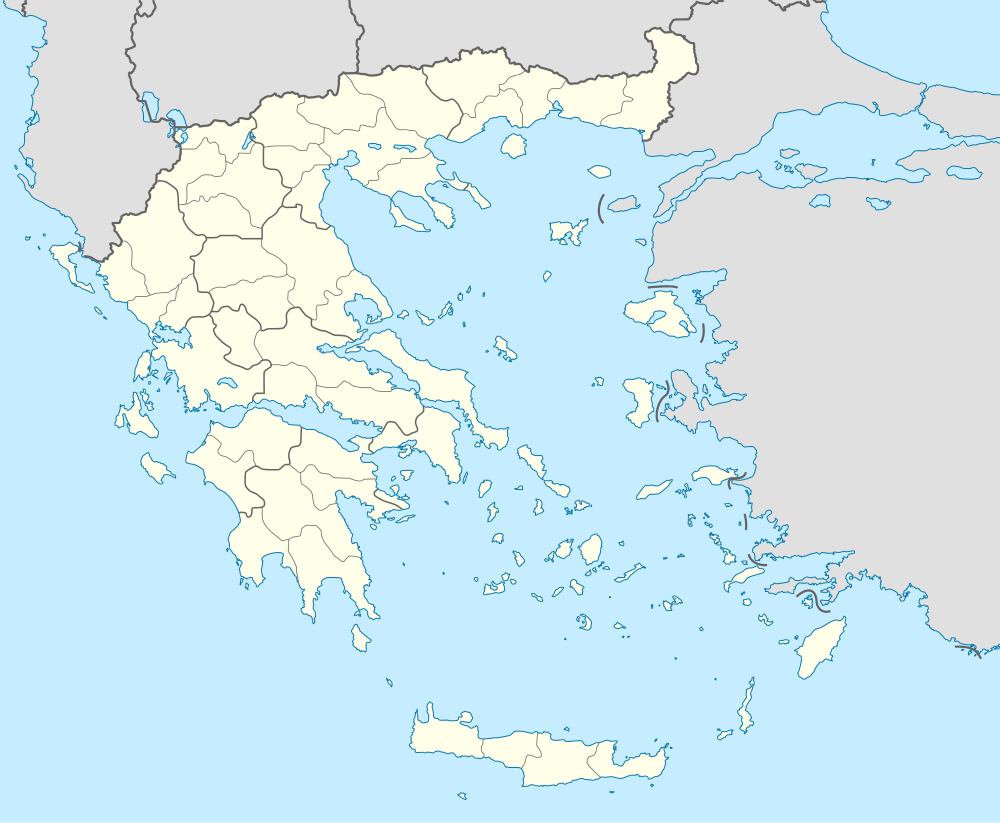Myli, Rethymno
| Myli Μύλοι | |
|---|---|
 Myli | |
| Coordinates: 35°20′N 24°30′E / 35.333°N 24.500°ECoordinates: 35°20′N 24°30′E / 35.333°N 24.500°E | |
| Country | Greece |
| Administrative region | Crete |
| Regional unit | Rethymno |
| Municipality | Rethymno |
| Time zone | EET (UTC+2) |
| • Summer (DST) | EEST (UTC+3) |
| Postal code | 74100 |
| Area code(s) | 28310 |
| Vehicle registration | ΡΕ |
Μyli (referred also as: Myloi, Mili or even Muloi. In Greek: Μύλοι) is a part of the local community of Chromonastiri of the Rethymno Municipality in the Rethymno (regional unit) of the region of Crete established by Kallikratis reform. Capital of the new municipality is Rethymno.
When discussing Myli we refer both to a village built in the early 1970s (“new Myli”) and to the desserted two small villages with the same name (or referred as “ano Myli” and “Kato Myli”), remains of which can be found within the Gorge of Myli.
geography and history
Taking the road south of Chromonastiri you will arrive at the village of Myli after 1.5 km. In order to visit the (old desserted village of ) Myli you have to walk down the path, which leads to the gorge, where the village is situated. Its name is derived from the many water mills, which were once in operation. A visit to this village is also worthwhile for its abundant vegetation and picturesque location.[1] There are references that the area of Myli was occupied from the Ottoman period onwards (but there are many buildings, remains of the Venetian period).[2]
- Population of Chromonastiri (and Myli in particular) [3]
| Settlement | 1940 | 1951 | 1961 | 1971 | 1981 | 1991 | 2001 |
|---|---|---|---|---|---|---|---|
| Chromonastiri | 439 | 347 | 293 | 173 | 294 | 237 | 358 |
| Kapediana | 102 | 64 | 48 | 35 | 27 | 19 | 28 |
| Myli | 99 | 75 | 52 | 36 | 39 | 31 | 39 |
| Prinedes | - | - | - | - | - | 29 | 57 |
| Total | 640 | 486 | 393 | 244 | 360 | 316 | 482 |
Attractions: The Gorge of Myli
The gorge of Myli is ideal for walk, it takes just one hour to walk through this full of green gorge. The gorge starts at Chromonastiri and ends up at the village Xiro Chorio. There is a small river in the gorge and the deserted old village of Myli, where one can see samples of traditional architecture, old churches and caves.[4] [5]
See also
List of settlements in the Rethymno regional unit
External links
- Photo Gallery, Web site of municipality of Rethymnno retrieved at 9 April 2012
- Cycling routes, Web site of Tourism Promotion Committee of Rethymno Prefecture, retrieved at 9 April 2012
References
- ↑ "Rethymno - Aghia Irini - Roussospiti - Chromonastiri - Myli – Rethymno, pic: Doorframe in the village of Myli". Tourism Promotion Committee of Rethymno Prefecture. Retrieved 22 April 2012.
- ↑ "Ottoman Settlements". Institute for Mediterranean Studies, Digital Crete. Retrieved 11 April 2012.
- ↑ Hellenic Statistical Authority, Digital Library (ELSAT), Census (Greek and English)
- ↑ Short presentation of the Gorge, Website of Rethymno Municipality accessed at 22 April 2012
- ↑ Leaflet in English